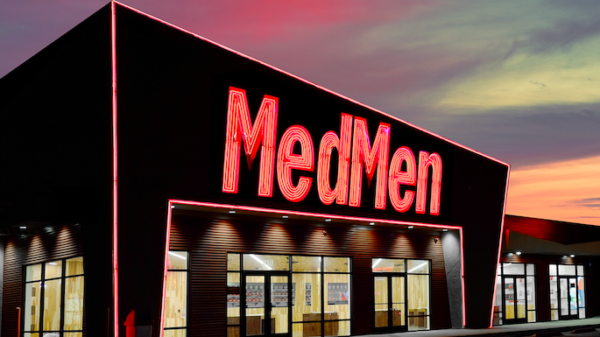As shareholders with empty bags search for answers and signs of hope, the spate of executive shuffling continues at many of the world’s biggest cannabis companies.
Last Friday’s step-down of Adam Bierman from his role as CEO of MedMen Enterprises Inc. (CSE: MMEN and OTCQX: MMNFF) was mired in a particularly thick coat of vitriol, delivered by a horde of frustrated investors expressing their discontents during a Reddit AMA just a week before.
The top rated post directly questioned Bierman and then-president Andrew Modlin’s decision to take a $1.5 million salary and each pay themselves $4 million in bonuses in 2018.
“It doesn’t sit well with investors seeing you and your partner buying 11 million dollar Beverly Hill homes next to Leo DiCaprio while the rest of us are taking huge losses. Some of us owning shares that currently sit at 1/10 the price we paid,” wrote Reddit user valueresponsibility.
“If you were going to pay yourself a bonus then you should have paid us dividends as well. Otherwise, that money could have been reinvested into growing the share price,” reads the post that was up-voted over 200 times. “While I’m still invested in Medmen my biggest fear isn’t the company itself but you as a CEO.”
While its share price was soaring at the end of 2018 at a high of $8.50 a share on Oct. 19, the high-end retailer reported a total net income loss of $147,740,533 (dollar amount reflects the exchange rate at the time). As financial woes amplified over 2019, MedMen’s valuation steadily fell to where it sits today at $0.58 a share.
Read more: MedMen axes 190 employees to raise bottom line

Brad Poulos teaches courses in Ryerson University’s Cannabis Essentials course series. Submitted photo
Ryerson University professor Brad Poulos says that until a company’s cash flow is positive, all spending should be reined in.
“There shouldn’t be fancy offices, big salaries or big cars,” he said. “When you’re making money for the shareholders, then I think it’s more appropriate for executives to be compensated less frugally.”
Poulos is an industry consultant and teaches a series of business courses specific to the cannabis industry, some of which he said have been oversubscribed.
Any typical cash flow statement is broken down into three types. There’s cash flow from investing, which is almost always negative because growing companies are buying assets, Poulos says. So how do you pay for those assets? You do it by either generating operational cash flow or by financing and bringing new money into the company.
“But that’s tough to do if a company is perpetually operationally cash flow negative,” he said. “So a company has to be moving toward cash flow positivity and of course paying an executive a salary that’s more than what’s appropriate in the moment doesn’t help that case.”
Bierman, who said he will remain on the MedMen board, responded to the post by saying that 2018 was a great year for the stock and that he downgraded his salary to $50,000. He said that he’s never sold a share in the company, and that he bought an additional $660,000 worth of stock this month.
Despite the company’s current woes, professor Poulos does see some positives with the switch-up — in particular the relinquishing of both Bierman and Modlin’s super-voting shares. This higher class of shares, which CEOs like Facebook’s Mark Zuckerberg and Under Armour’s Kevin Plank have, allow them to veto decisions made by shareholders.
Poulos said these share types are created when founders take companies public but want to retain control.
“I’m not a big fan of them really. I don’t understand the need for them. If the CEO’s doing a good job, the shareholders will keep him or her in place,” he said. Eliminating the super shares brings governance more in line with actual ownership of the company.
For now, the special shares have been entrusted to Ben Rose, chief investment officer of Wicklow Capital. MedMen said in a press release last week that these shares will completely disappear this December and only regular voting shares will remain.
Sometimes in the western world we put way too much focus on who the CEO is, Poulos says.
“I think it really comes down a lot to the next couple layers of management,” he said. “I’ve seen a few companies start to invest in really quality operational management. So they can bring manufacturing discipline to what is essentially a manufacturing operation.”
Poulos mentioned Hexo Corp’s (NYSE: HEXO) hire of Donald Courtney as chief operating officer last June, noting his strong operational background in various roles at companies including Mars Inc., Pepsi Bottling Group and most recently as COO of MedReleaf Corp. (TSE: LEAF).
Top photo of the Stahl House in Beverly Hills, LA by mbtrama
nick@mugglehead.com
@nick_laba














